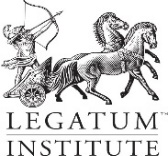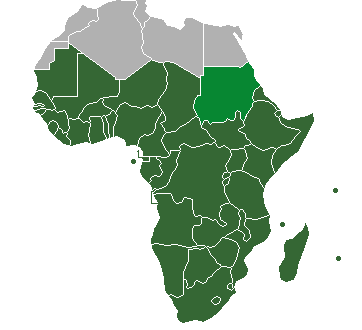 The Legatum Institute’s 2021 Prosperity Index has found that in Sub-Saharan Africa “prosperity has improved for the 11th year in a row” with the rate of extreme poverty falling from 49.9% to 42.3%. According to the Index, 40 out of the 49 countries in the region have seen an increase in prosperity since 2011, with this change being driven in part by improvements in the region’s healthcare systems where “the coverage of antiretroviral HIV therapy has increased from just 18% to 61% in just the past ten years”.
The Legatum Institute’s 2021 Prosperity Index has found that in Sub-Saharan Africa “prosperity has improved for the 11th year in a row” with the rate of extreme poverty falling from 49.9% to 42.3%. According to the Index, 40 out of the 49 countries in the region have seen an increase in prosperity since 2011, with this change being driven in part by improvements in the region’s healthcare systems where “the coverage of antiretroviral HIV therapy has increased from just 18% to 61% in just the past ten years”.
Despite global prosperity stagnating for the second year running, Sub-Saharan Africa was one of only two regions which bucked this trend in 2021 with “modest but consistent progress” in the areas of health, levels of social tolerance, and infrastructure.
Regional Highlights:
Cote D’Ivoire (120th) has experienced the greatest improvement in its overall prosperity of any country in the world in the past decade. It has seen major improvements in all pillars apart from Personal Freedom and the Natural Environment, consequently rising 24 places in the global rankings. It has made particularly strong progress in Economic Quality since 2011, with high-tech manufactured exports more than doubling as a share of total exports.
Mauritius (45th) ranks most highly in the region for overall prosperity, ranking in the top 50 for seven of the Index’s 12 pillars.
South Sudan (167th) is the least prosperous country in the world. War and civil conflict have persistently troubled this country, resulting in significant numbers of refugees. There are almost 200,000 refugees in South Sudan per million inhabitants.
Global Findings:
Globally, the 2021 Legatum Prosperity Index reveals that “prosperity has plateaued for the second year running” and this is the result of weakening personal freedoms, specifically Freedom of Speech and Freedom of Assembly.
The Index identifies that whilst “COVID-19 has undoubtedly had a short-term impact on prosperity”, the pandemic has not been solely responsibly. “The past decade has seen the increasing suppression of the core liberties which underpin true prosperity.”
The “key area of concern”, where this suppression is taking place, is the “ongoing deterioration in political accountability and freedom of speech and assembly in most regions of the world”. In the last decade 72% of all nations have seen a decline in freedom of speech.
In 100 countries around the world both freedom of expression and freedom of assembly deteriorated over the last decade. This has significant implications for global prosperity.
The Regions:
Overall prosperity in North America and Western Europe deteriorated between 2020 and 2021 and they have therefore “been the main contributors to the stalling of global prosperity.”
Sub-Saharan Africa continues to see modest but consistent progress for the 11th year in a row, with 40 out of 49 countries seeing their levels of prosperity increase.
The only other region that improved its overall prosperity was Eastern Europe, which has now experienced significant increases in its prosperity for the past five years.
Economic Quality and Employment:
Between 2019 and 2021 the world saw a sharp fall in its “Economic Quality” as a result of the COVID-19 pandemic. “Economic Quality” reflects a decline in the ability of the global economy to “generate wealth sustainably and with the full engagement of its workforce.”
This is illustrated by the fact that unemployment rates deteriorated across 158 countries between 2019 and 2020.
The decline in “Economic Quality” was felt most keenly in the West, with the United States’ unemployment rate more than doubling between 2019 and 2020; and Western Europe experiencing a contraction of -7.5% in GDP per capita.
However, the report also notes that prior to the pandemic, the labour market varied considerably across the world as a result of labour force participation rates – in turn affecting levels of prosperity. The disparity seen globally “is driven by the limited number of women in work”. For instance, “only 24% of women participate in the labour market in MENA, compared to 70% in Western Europe.”
Most Concerning Trend:
Most importantly, the Index acknowledges that whilst the plateauing of prosperity has been caused — at least in part — by the health and economic consequences of the COVID-19 pandemic, it has also been driven by the “concerning erosion of many of the core features that underpin prosperity”.
This is explained by an overall stagnation in “Personal Freedom”, a global deterioration in standards of Governance, and a decline in the Natural Environment:
Freedom of speech and assembly
Overall levels of “Personal Freedom” have “flatlined” since 2011. This measures individual rights, Freedom of Speech and Assembly, Absence of Legal Discrimination, and levels of Social Tolerance.
The main reason for this flatlining is the “ongoing deterioration in Freedom of Speech and Assembly in most regions of the world”, particularly where Political Accountability has weakened.
Freedom of Speech has seen a significant decline, with 72% of nations having experienced a deterioration in the decade since 2011, and 100 countries having seen a decline in both Freedom of Speech and Freedom of Assembly in the same time frame.
The report notes that the restrictions to freedoms from COVID-19 lockdowns have actually “reinforced a longer-term trend” rather than emerging from nowhere. For instance, in the Asia-Pacific region alone, 20 out of 29 countries have seen a regression of their right to Freedom of Assembly since 2011.
This is not a problem exclusive to the less developed nations. Despite both being in the top 20 overall for overall prosperity, Hong Kong ranked 113rd, and Singapore 133rd for Freedom of Assembly.
The report further emphasises that “across the OECD, these foundations [of freedom of expression and assembly] are all weakening — and have been doing so steadily for the last decade”
Since 2011 the three wealthiest regions on earth – North America, Western Europe, and Eastern Europe – have seen an average decrease in their freedom of speech.
Global standards of Governance
“The nature of a country’s Governance has a material impact on its prosperity. The rule of law, strong institutions and regulatory quality contribute significantly to economic growth, as do competent governments that enact policy efficiently.”
However, between 2011 and 2021 there has been a global “deterioration” in standards of Governance.
In the last decade, Latin America and the Caribbean, MENA, North America, and Eastern Europe have all seen a deterioration in their quality of Governance. Sub-Saharan Africa, Western Europe, and Asia-Pacific have only seen minor improvements.
Since 2018, out of 167 countries “116 [countries] have seen either a deterioration or no improvement” in their overall standards of Governance.
The biggest reason for this global decline is because there has been a weakening of “Executive Constraints” since 2011. In this time 115 countries have seen power “become increasing centralised in the hands of governments”.
Since 2018, 64 countries have seen a fall in levels of Political Accountability, with the regions of North America, MENA, and Eastern Europe seeing the biggest declines over the last decade.
In Western Europe, between 2019 and 2020, nearly two thirds of countries (13 out of 20) saw a weakening in their overall quality of Governance.
A decline in the natural environment
The natural environment has “a direct effect on people in their daily lives” as well as impacting on the “prosperity of future generations”
Despite efforts in the last decade to bring about real change, the natural environment has “seen little improvement” since 2011. In that time, just three regions have seen an improvement in their natural environment and the impact it has on the daily lives of people – Western Europe, Asia-Pacific, and Eastern Europe.
“Although the rate of emissions of CO2, SO2 and NOx has decreased in North America and in both Western and Eastern Europe, the continued rise in other regions has meant that over the past decade, global emissions have been on the rise.”
Since 2011, 81 countries have seen a deterioration in their Exposure to Air Pollution.
The international efforts to address emissions “must be undertaken in a way that provides a pathway to prosperity for those nations that have not yet passed through their industrialisation phase.”
The Legatum Institute believes that prosperity is built when:
Governments make decisions in such a way that engenders trust and with integrity, respecting the freedom of their citizens; prosperous nations are ones where governments govern with the agreement of the people, and where citizens take responsibility.
Economic decisions are taken responsibly to sustain an enabling environment for productive employment, sustained economic growth and personal development.
The principles of personal responsibility and freedom go hand in hand; citizens are free and order their lives taking responsibility for their own families and communities.
People take care of their own physical health and mental wellbeing and healthcare is accessible to all; they do not make decisions that threaten the health of others.
Dr Stephen Brien, Director of Policy at the Legatum Institute, commented: “Since the fall of the Berlin Wall, we have witnessed rapid prosperity improvements in nations undergoing enormous transition, ushering in a new era of freedom and opportunity. Since this point, many nations around the world have built prosperity on the firm foundations of the rule of law, open markets, respect for freedoms and personal responsibility. But the first warning lights are beginning to flash.
“The 2021 findings are showing that global prosperity has plateaued for the past two years, but this is not simply a result of the recent impact of the COVID-19 pandemic.
“Ongoing deteriorations in four key elements are causing the erosion of the core components of prosperous societies: Executive Constraints, Political Accountability, Freedom of Assembly and Association, and Freedom of Speech and Access to Information. This should concern us all.
“Suppression of the freedom of people to assemble and their freedom of speech is beginning to lead to limited and stunted prosperity. If we want to continue on the pathway from poverty to prosperity, leaders around the world have got to empower and free individuals to make the most of their talents. It is also vital to ensure that executives are held to account, so that those who govern to do according to the principles of the rule of law.
“Creating lasting pathways to prosperity requires that we do not take our core freedoms for granted. We squander them at our peril.”
Legatum Prosperity IndexTM
The Legatum Prosperity Index is used around the world by political leaders, policymakers, philanthropists, investors, academics, and journalists.
Now in its 15th year, the Index measures the prosperity in 167 countries representing over 99% of the world’s population. The combination of present-day analysis,
The Index shapes discussions in countries from all seven regions – with the findings helping shape national and international discussions around issues as diverse as investment, infrastructure, personal freedom, and healthcare.
It comprises three domains – Inclusive Societies, Open Economies, and Empowered People – which are underpinned by 12 pillars that in-turn consist of 67 different policy-focused elements.
A rich dataset of 300 individual country-level indicators, drawn from a wide range of over 50 international sources, provides the detailed measurement of national performance.
2021 ranking highlights
Top 10 ranking countries for overall prosperity
Bottom 10 ranking countries for overall prosperity
1
Denmark
158
Syria
2
Norway
159
Sudan
3
Sweden
160
Democratic Republic of Congo
4
Finland
161
Somalia
5
Switzerland
162
Eritrea
6
Netherlands
163
Afghanistan
7
Luxembourg
164
Chad
8
New Zealand
165
Yemen
9
Germany
166
Central African Republic
10
Iceland
167
South Sudan
 ..:: AUTO REPORT AFRICA ::..
..:: AUTO REPORT AFRICA ::..




